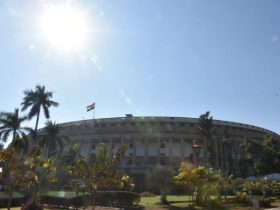The US midterm congressional elections in November of last year were a major political event around the world. But 2023 will also be a monumental election year, with markets around the world anticipating a number of noteworthy votes in so-called “middle powers” like Turkey, Thailand, Poland, and Pakistan.
Countries like Australia, Argentina, Italy, and Indonesia are examples of middle powers because they are not considered “great powers” in the same way that the United States is. There will be a number of crucial elections in such countries over the next 12 months.
Take the Asia-Pacific region as an example, where many eyes will be on the upcoming national elections in countries like Bangladesh, Thailand, Pakistan, Myanmar, and Cambodia.
Ex-prime minister Imran Khan has begun a high-stakes gamble to hasten the upcoming general election in Pakistan, which is scheduled for early October. His actions have the potential to further destabilise the political situation in Pakistan, a country of 230 million people currently experiencing a severe economic crisis.
In the meantime, the elections this year in Myanmar will be the first since the country’s ruling party, the National League for Democracy, and President Win Myint were deposed in a coup in February 2021. Since then, Acting President Myint Swe has kept the country and its 55 million people under a state of emergency for up to two years. This election has not yet been scheduled.
It appears less likely that Cambodia’s general election, which is scheduled for July, will result in a significant political shift for the country’s 18 million people, in contrast to the situation in Myanmar. Hun Sen, who has led Cambodia and its forerunner states as prime minister for nearly four decades, is expected to run for reelection.
In the upcoming election in May, Prime Minister Prayut Chan-O-Cha and his new United Thai Nation Party will be running for another term. Thailand has a population of 70 million. His rise to power as army chief in 2014 and subsequent controversial election victory in 2019 have done little to boost his flagging popularity.
Bangladeshi Prime Minister Sheikh Hasina is another leader who seems to be looking for a fresh mandate. The next general election in the country of around 165 million people is scheduled for January 2024, and she will want continued electoral success for the Awami League. Resettling hundreds of thousands of Rohingya refugees fleeing Myanmar earned her international praise, but her government has been criticised for what is seen as its increasingly authoritarian rule.
It’s hard to predict how these high-profile elections will turn out. What we do know is that they will have far-reaching effects on the global economic and financial landscape, as well as domestic politics and international relations, well into the 2020s and beyond.
Toby Hammond Andrew
Politically, much of the world will be focused on the Asia-Pacific region this year because India is hosting the Group of Twenty summit. This could help Prime Minister Narendra Modi further establish himself as an internationally respected figurehead in India before the country’s own general election in 2024.
Also Read :How the universe was found by scientists is truly really amazing
This year’s political action will spread beyond the Asia-Pacific region. In June, Turkiye, a country of almost 85 million people, will hold an election that could mark the end of the two-decade “Erdogan era,” which began in 2003 with Recep Tayyip Erdogan’s election as prime minister and continued with his election as president.
The general election in Nigeria will take place in February 2023; national elections in Spain (December) and Poland (March) will also be significant (due in the fall).
With a population of nearly 220 million, Nigeria is often called the “Giant of Africa.” However, the current president, Muhammadu Buhari, is at the end of his term and cannot run again.
Prime Minister Pedro Sanchez of the Socialist Party is running for reelection in Spain, which has the eurozone’s fourth-largest economy and is a key G20 state with a population of around 50 million. However, the People’s Party, which is to the right of centre, has recently been revitalised and is eager to regain power, so he faces a formidable challenger.
Nearly 40 million Poles will go to the polls on Sunday, and the war in Ukraine will have a significant impact on who they vote for. It’s also worth noting that Donald Tusk, who was prime minister of Poland before becoming president of the European Council in Brussels, is running for a seat in parliament.
In October, Argentina will hold its presidential election and vote for members of the national legislature, making it the most noteworthy election in the Americas. The country of 45 million people has a president who is eligible for a second term but whose popularity has plummeted and whose ruling coalition was soundly defeated in midterm legislative elections.
There is a lot of uncertainty about the results of these high-profile elections. What we do know is that they will have far-reaching effects on the global economic and financial landscape, as well as domestic politics and international relations, well into the 2020s and beyond.








Leave a Reply